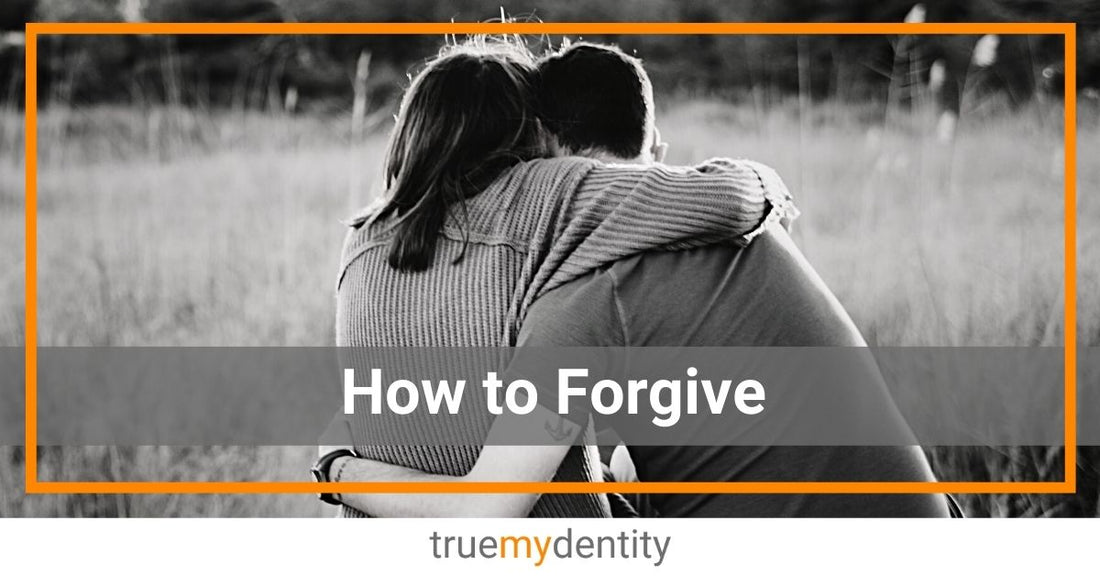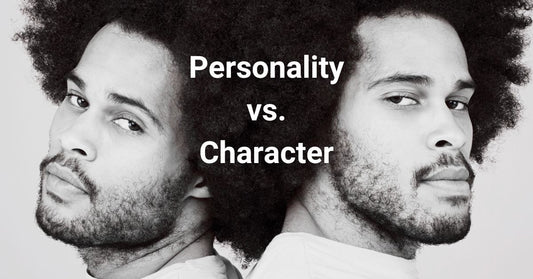
How to Forgive People | Forgiving Someone Who Hurt You
Luke FeldbruggeShare
Knowing how to forgive people who hurt you can be challenging for several reasons. First, the pain caused by the other person's actions can be difficult to let go of and may result in feelings of anger, resentment, and bitterness. Second, forgiving someone who hurts you requires vulnerability and openness, to explore your personal emotions and how the experience made you feel. Third, forgiving others can be hard if you do not believe the other person is genuinely remorseful or willing to make amends. Finally, forgiving someone who hurt you may feel like letting that person off the hook or condoning their behavior, which can be difficult to reconcile with your values and beliefs.
In this post we explore the general process you might go through when forgiving someone who hurt you. If you are a forgiving person, you likely have a dependable process for forgiving others. If forgiving is not one of your strongest, most dominant positive characteristics, we hope this six step process can help you work toward forgiving others and make the power of forgiving more commonplace in your life.
Complete our free questionnaire and find out if being forgiving is one of your most dominant character traits, and which of the other 58 traits are also your most powerful qualities.
6 Step Process of How to Forgive Others
Forgiveness is a complex and deeply personal process, and it can look different for everyone. Learning and understanding how to forgive for your own well-being is important. There are some general steps that people often go through in order to forgive someone who has hurt them, and this may be a good starting point for you. Here is a general breakdown of the forgiveness process:
1) Acknowledge the Hurt
The first step in how to forgive someone is to acknowledge the pain and hurt that they have caused you. This means being honest with yourself and accepting the reality of what happened, what they did, and recognizing the impact it had on you.
2) Process Your Emotions
Forgiveness doesn't mean suppressing your emotions or pretending like everything is okay. Instead, it involves allowing yourself to feel and process your emotions in a healthy way. This might involve talking to a therapist or trusted friend, journaling, or engaging in other self-care activities. Accepting responsibility for your own feelings is an important step in the process. Recognize that you have control over how you respond to the situation, and that you can choose to let go of anger and resentment if that is the right course of action for you.
3) Decide to Forgive
Forgiving others is a choice, and in order to continue with the forgiving process, it's important to make a conscious decision to forgive the person who hurt you. It needs to be a choice you believe is best for you. This is an important step in how to forgive someone. Because it may take some work to get past the hurt or pain, and if you believe it's the right thing to do, you're more likely to continue pursuing it. By forgiving someone, it does not mean you are condoning their actions. Instead, you're choosing to let go of the anger and resentment you feel towards them because of their actions.
4) Practice Empathy
Empathy involves putting yourself in the other person's shoes and trying to understand their perspective. This can be challenging, especially if the hurt they caused you was significant, but it's an important step in how to forgive someone. It may help you better understand why they behaved the way they did, or made the choices they made. Sometimes our view of the situation can be limited, and through talking with the other person, we may discover a broader perspective and deeper understanding of why things happened the way they did.
5) Communicate Your Forgiveness
Depending on the situation, it may be helpful to communicate your forgiveness to the other person directly. This can involve having a conversation with them or writing a letter. However, it's important to remember that forgiveness is ultimately for your own benefit, and you don't necessarily need to communicate it to the other person in order to fully forgive them. If you do choose to communicate your forgiveness with the other person, it provides the opportunity to express your feelings on the matter, maybe setting boundaries, and making amends if necessary.
6) Let Go of Resentment and Move On
Finally, forgiving others involves letting go of the resentment and anger you feel towards the other person. This can be a difficult step in how to forgive someone and it may take some time to work through it. Be patient with yourself while addressing your feelings as you work toward letting go. It's important to remember that holding onto these negative emotions only harms yourself in the long run, so the work you put into it is often worth it. It also needs to be said this does not mean forgetting what happened. Instead, it means choosing to no longer hold onto the negative emotions associated with the experience or the person.
Noteworthy: Seek Professional Help
If you are struggling with how to forgive someone, consider seeking the help of a therapist or counselor. They can provide a safe and supportive environment to explore your feelings and develop strategies for forgiving others that work for you.
The process of forgiving someone who hurt you is a personal and individual journey, and it may take time and effort to fully forgive someone who has hurt you. However, by acknowledging the hurt, processing your emotions, practicing empathy, and letting go of resentment, you can move towards a place of healing.
Forgiving - True Mydentity Style
True Mydentity offers designs on our clothes that highlight 58 positive character traits. The powerful forgiving trait is one of the 58 character traits featured. We believe if you know your dominant positive characteristics; focus on what you do to learn, work and build relationships using these dominant traits; you will feel more fulfilled and closer to your purpose. And as you improve upon leveraging these positive character traits in those three areas of your life; you move toward discovering your full potential.
If being forgiving is an important part of who you are, make True Mydentity’s forgiving apparel part of your character’s power suit; and be the forgiving character you’re meant to be.
VIEW FORGIVING APPAREL COLLECTION >>
Complete True Mydentity’s FREE questionnaire and find out which of the 58 traits are your most dominant.



